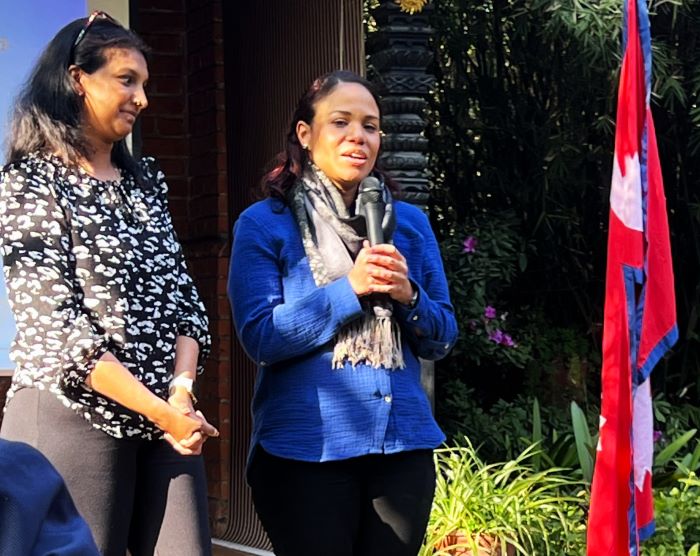Water is very important to all human beings, animals and plants too to survive. There can be no life on earth without water as 60 percent of our body weight is made up of water.
Our bodies use water in all the cells, organs, and tissues, to help regulate body temperature and maintain other bodily functions as our bodies lose water through breathing, sweating, and digestion, it’s crucial to rehydrate and replace water by drinking fluids and eating foods that contain water.
Thus, it has a key role in functioning nutrients to cells, getting rid of wastes, and maintaining temperature and more. So, all living things on earth need water.
Water treatment is a process involving different types of operations (physical, chemical, physicochemical and biological) aiming to eliminate contamination or non-desirable characteristics of water that improves the quality of water to make it appropriate for a specific end-use may be drinking, industrial water supply, irrigation, river flow maintenance, water recreation or many other uses, including being safely returned to the environment.
FREE BIPIN JOSHI AND OTHER THOSE KIDNAPPED BY HAMAS EARLIER AT SAFE
Water purification can not only help remove harmful containment but also improve the taste, smell and visual appearance of your drinking water. It reduces the amount of chlorine, soil residue, and organic and inorganic substances.
Today, in Israel nearly 90 percent of our wastewater is recycled. It is around four times higher than any other country in the world. Israel adopts the systems of drip irrigation, advanced filtration, advanced water leakage detection, rainwater collection and treatment systems, water security and smart-city technologies.
It is a remarkable achievement benefitting not only Israel but helping save water around the world, from Africa to California of the US to India.
In contrast to Israel’s 87% water reuse rate, the United States’ rate is less than 10%.
The water treated for reuse in Israel is predominantly used for agricultural irrigation. Roughly 10% is used for environmental purposes, such as increasing river flow volume and fire suppression. Only 5% percent is discharged into the sea.
In light of Israel’s carefully planned, high-quality water reuse and efficient distribution, Israel now has a national water surplus and exports water to its neighbors.
The Bahr El Baqar wastewater treatment project of Egypt is the largest water treatment plant in the world.
In this regard, a lecture programme was organized at the residence of the Ambassador of Israel to Nepal on Friday January 12, 2024 where Dr. Clive Lipchin, Director of the Centre for Transboundary Water Management at the Arava Institute for Environmental Studies, Israel has stressed on the importance of water in every cycle of human life and need of water treatment plant.
“Singapore is a global leader in water management and wastewater treatment which has invested heavily in its wastewater infrastructure, and its sewage treatment plants are some of the most advanced in the world,” said Dr. Lipchin informed.
Singapore also has some of the strictest water quality standards in the world, he added.
Thus, with the kind cooperation of the University of Maryland, now we are also working to set up a water treatment plant in Nepal that will be at NamoBuddha Municipality of Kavre district. It will be more feasible as it doesn’t need an electricity grid line as it will be operated from the solar panel and battery, he stressed.
Professor Dr. Bim Shrestha of the Kathmandu University shed light on the importance of a water treatment plant to be established in NamoBuddha municipality with the help of Maryland university that will be a milestone project for the unplanned growing urbanization of the Kathmandu Valley.
He also briefed about Guheshwori wastewater treatment plant located at the bank of the Bagmati River on the northeastern part of Kathmandu City.
Thinking water is vital necessary element of life, the Guheshwori wastewater treatment plant project is investing in rehabilitation and expansion of sewerage network, modernization and expansion of wastewater treatment plants and improvement of wastewater management in the Kathmandu Valley that will help improve service delivery and reduce pollution of the Bagmati River and its tributaries.
The project is also strengthening the institutions working for wastewater management in the Kathmandu Valley to increase operational efficiency and improve service delivery, and will result in positive impacts on health and quality of life for the residents of Kathmandu Valley.
The world is entering what Global Water Intel has called the “golden decade” of wastewater reuse.
At the event, Israeli Ambassador to Nepal Hanan Goder said Israel leads the world in water recycling.
He also referred to Hamas’ brutality attack on Israel on October 7, 2023 that claimed hundreds of lives including 10 Nepali students among others and one student Bipin Joshi who was kidnapped is still missing without knowing any about where he is.
NamoBuddha Municipality in Kavre District will have a water treatment plant to be established with the cooperation of University of Maryland of the USA.

Professors and students from the University of Maryland who are on site-visit to Nepal in this connection were presented among other various personalities of various walks-of-life of Nepalese society.
It is generally accepted that if the world does not make significant water management changes, water demand is expected to surpass supply by 40% by 2030.
The UN Habitat said rectifying the shortfall could cost up to US $60 billion annually for the two following decades, changing everything from the cost of food to geopolitics.
So, the wastewater treatment process must be adopted to reduce water pollution and sustainable solutions applying technologies needed to preserve water resources and turn wastewater into an asset.









